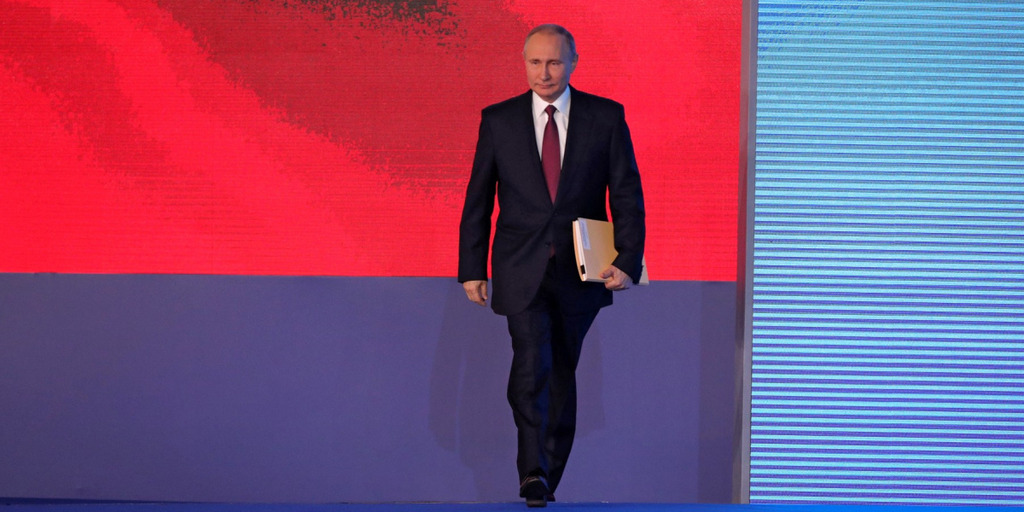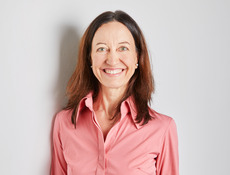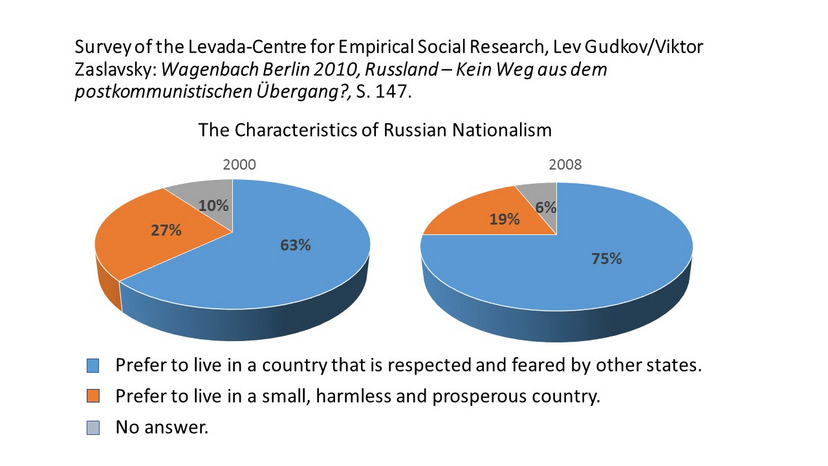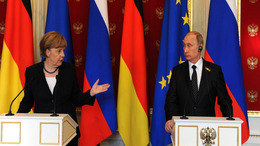
www.kremlin.ru / via Wikimedia Commons - CC-BY 4.0, http://creativecommons.org/licenses/by/4.0
Putin before his Re-election - Increasing the Dose of Nationalism
In Russia, there is no doubt as to Vladimir Putin's re-election next Sunday. A high turnout, however, is doubtful. The only serious challenger, Alexei Navalny, who is not admitted as a candidate, is calling for an election boycott. Putin is mobilizing by demonstrating Russia's military clout. A commentary by our Senior Expert for Eastern Europe, Miriam Kosmehl.
"Our Country, Our President, Our Choice." This is not the self-confident slogan of the presidential candidate Vladimir Putin. It is the message the Russian Central Election Commission spreads on large billboards. The current and next president, who brought all state structures under his control after taking office at the turn of the millennium, does not need to worry about being elected, but about being able to present an acceptably high turnout. For this purpose, some resourceful mobilization is taking place – for example, students are sending letters to voters, "inviting" them to the election.
There are no real opponents. The one who dared to criticize top-level corruption and the glorification of war, Boris Nemtsov, was shot dead in 2015. The other, lawyer Alexei Navalny, is barred from the election because of a controversial conviction, even though he has successfully contested it before the European Court of Human Rights.
Election Boycott as Protest
Now Navalny is calling for a boycott. This is to be taken seriously, because unlike failed reformers Yegor Gaidar, Anatoly Chubais, and Grigory Yavlinsky, he manages to communicate with more citizens. This is something new in elitist Russian society, whose basis in equality is only a myth. In a country where doctors and teachers still earn only € 350 a month, Navalny uses digital media to disseminate knowledge of the fairy-tale wealth of its present rulers. He even bridges the gap between Moscow and St. Petersburg and the provinces, and successfully mobilizes in the various regions.
At the same time, especially socially committed citizens are under pressure. Employees of reputable organizations are defamed, such as those of Memorial, founded by Nobel laureate Andrei Sacharov for victims of repression. Renowned scientists must (again) fear the camps and are lucky if Western colleagues with relevant relationships can still bring them out of the country.
"God forbid that we fall into a blind worship of all that is Russian simply because it's Russian: God forbid us from limited and, to be honest, ungrateful attacks against the West [...] The surest sign of strength is to know one's own weaknesses and imperfections."
Ivan Turgenev (1818-1883)
KGB veteran Putin reversed the attempts to end Russia's self-isolation that had begun in the transformation of the 1990s. He steadily shifted influence and property to employees of the security agencies. Economic reforms and innovation fell by the wayside. Consequently, fewer and fewer Russians are economically well off and few have the opportunity for advancement. Many suffer from major social problems – for example the State does not ensure decent health care.
Russia's Self-Isolation
A backward-looking nationalism serves to secure the domestic safeguarding of its own regime, which in a global world order is more concerned with protests of its own citizens than with foreign military. The Kremlin meets dissatisfaction with ever greater doses of nationalism and isolation – proven instruments in times of crisis. Even in Putin's speech on the state of the nation, which he strategically held not as usual at the end of the year but shortly before the election, most of the focus was on militarism. Glorifying weapons is popular in Russia, especially since Putin has revived traditional bogeymen: "encirclement from outside" (meaning "the West"), and betrayal from within by the "Fifth Column", i.e. inconvenient civic groups.
The safeguarding of power is also provided by the military interventions in Syria and Ukraine as well as the attacks on the model of the democratic constitutional state, which the powerful Russian state media represent as failing because of Muslim infiltration and moral decay (buzzword "Gayropa"). It also involves manipulating foreign elections and referendums, cooperating with parties such as "Alternative for Germany" (AfD) and the French National Front, and investing heavily in fake news campaigns and cyber-attacks.
As early as 2010, Lev Gudkov, the respected director of the Levada-Center for empirical social research, analyzed as follows: "Perhaps the regime has now reached a stage where the instinct for power is forcing the leadership to continue on the path it has embarked upon, even though it may sense how wrong or even dangerous it is. The enormous dimensions of abuse of power and violations of law leave the leadership no opportunity to retreat or relinquish power, since if it were to lose power, it would no longer be safe from prosecution."
In its dialogue with Russia, which fortunately has never been aborted, the EU should still seek a way out of the impasse – albeit with a variety of Russian partners, and without playing down the abuse of power and the breaches and violations of law. Only from its own clear position of strength is influence possible. Dealing with Russia will not be any easier after the re-election of Vladimir Putin.






